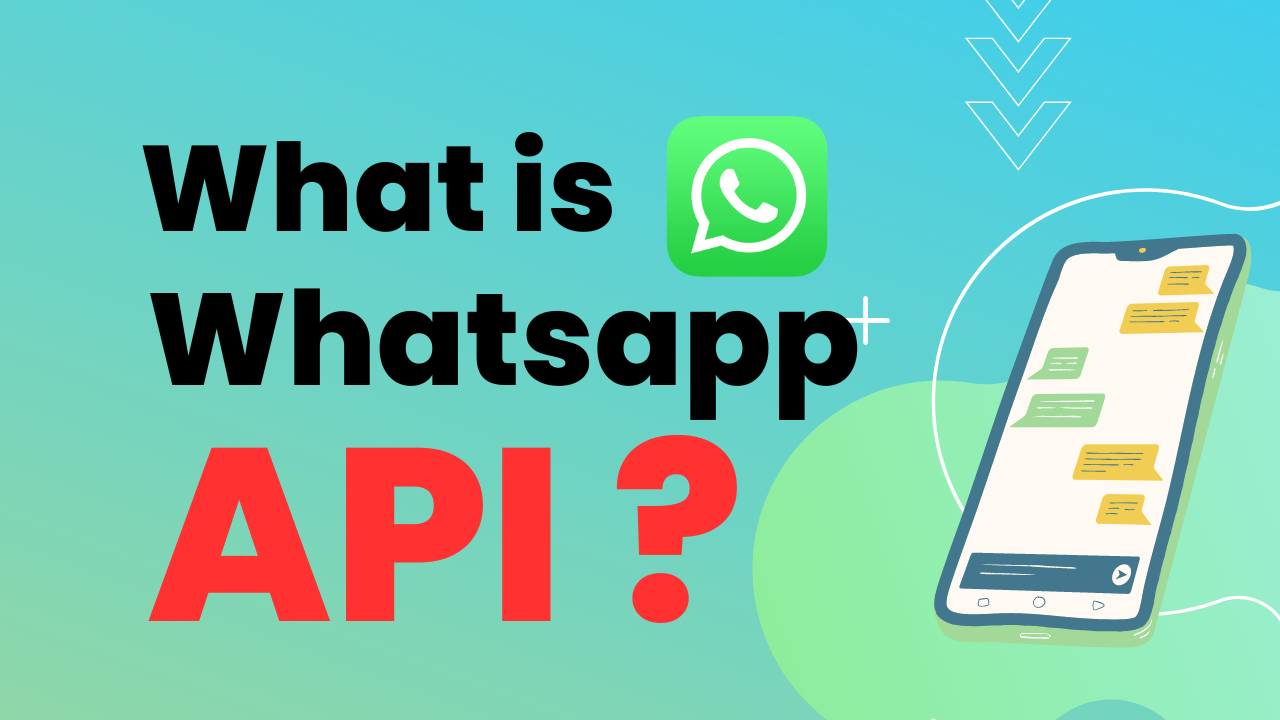What Is Whatsapp API?
- Posted by Ekwik Classes
- Date June 23, 2023
- Comments 0 comment
What Is WhatsApp API? Exploring the Benefits and Functionality
In today’s digital era, instant messaging has become an integral part of our daily lives. WhatsApp, one of the most popular messaging apps worldwide, has revolutionized the way we communicate. However, many businesses are now leveraging the power of WhatsApp beyond personal conversations by utilizing WhatsApp API. In this article, we will delve into the concept of WhatsApp API, its functionalities, benefits, and how it is transforming business communication.
Understanding WhatsApp API
WhatsApp API, short for Application Programming Interface, allows businesses to integrate WhatsApp’s messaging capabilities into their own applications or systems. It serves as a bridge between businesses and WhatsApp, enabling automated and personalized communication with customers at scale.
With it, businesses can send messages, and notifications, and even conduct transactions directly through WhatsApp. It provides a streamlined channel for customer engagement, support, and marketing, enhancing overall customer experience and driving business growth.
Features and Benefits of WhatsApp API
1. Enhanced Customer Communication
It enables businesses to engage with customers in real time, providing instant support and personalized communication. It allows businesses to send text messages, images, videos, and documents, facilitating seamless information exchange.
2. Automated Messaging
By leveraging it, businesses can automate their messaging workflows. They can set up predefined templates and responses, saving time and resources while maintaining consistent communication with customers.
3. Rich Media Support
It supports the sending of rich media content, such as images, videos, and audio files. Businesses can leverage these features to create visually appealing and interactive messages, captivating their audience and conveying information effectively.
4. Transactional Capabilities
With it, businesses can enable transactions directly within the messaging platform. They can provide customers with a seamless purchasing experience, allowing them to place orders, make payments, and receive order updates, all within the WhatsApp interface.
5. Global Reach
WhatsApp boasts a vast user base, with billions of active users worldwide. By utilizing it, businesses can tap into this extensive reach and connect with customers on a global scale, breaking barriers and expanding their market reach.
How Does WhatsApp API Work?
It works by establishing a secure and authenticated connection between businesses and WhatsApp. To access the API, businesses need to partner with a WhatsApp Business Solution Provider, which acts as an intermediary, facilitating the integration process.
Once the integration is set up, businesses can utilize various API endpoints to send and receive messages, manage templates, and handle customer interactions. The API supports both inbound and outbound messages, enabling bidirectional communication between businesses and customers.
Use Cases of WhatsApp API
It offers diverse applications across various industries. Here are some notable use cases:
- Customer Support: Businesses can provide real-time support to customers, addressing queries, resolving issues, and offering personalized assistance.
- Notifications and Alerts: WhatsApp API can be used to send critical notifications, transactional updates, and timely alerts to customers, ensuring they stay informed.
- Appointment Reminders: Service-based businesses, such as healthcare providers and salons, can leverage WhatsApp API to send appointment reminders, reducing no-shows and optimizing scheduling.
- E-commerce Transactions: It enables businesses to facilitate seamless transactions, allowing customers to place orders, track shipments, and make payments effortlessly.
- Marketing and Promotions: Businesses can leverage WhatsApp API to send targeted marketing campaigns, product updates, and exclusive offers directly to customers, fostering engagement and boosting sales.
Implementing WhatsApp API: Considerations and Best Practices
When implementing it’s, businesses should consider the following:
- Compliance: Ensure compliance with WhatsApp’s guidelines and policies to maintain a positive user experience and adhere to the platform’s terms of service.
- Opt-In and Privacy: Respect user privacy and obtain proper consent before initiating communication. Provide clear opt-out mechanisms for users who no longer wish to receive messages.
- Personalization: Tailor messages to suit the recipient’s preferences and needs, ensuring a personalized and relevant experience.
- Automation and Templates: Leverage automation and predefined templates to streamline messaging workflows, ensuring consistency and efficiency.
- Analytics and Performance Tracking: Monitor message delivery, engagement rates, and customer feedback to assess the effectiveness of WhatsApp API integration and make data-driven improvements.
Security and Privacy Concerns
As with any communication platform, security and privacy are essential considerations when using WhatsApp API. Businesses must prioritize data protection, secure API integrations, and comply with relevant data privacy regulations to safeguard customer information and maintain trust.
It provides encryption for messages in transit, but businesses must implement appropriate security measures to protect data within their systems and during storage.
Future Trends and Innovations
The future of WhatsApp API holds promising advancements in business communication. Some anticipated trends include:
- AI-powered Chatbots: Integration of AI-powered chatbots within WhatsApp API, enabling advanced conversational experiences and efficient customer support.
- Voice and Video Capabilities: Integration of voice and video calling functionalities into WhatsApp API, enhancing communication options for businesses and customers.
- Integration with Third-Party Services: Increased integration capabilities with third-party services, allowing businesses to provide comprehensive solutions within the WhatsApp platform.
- Augmented Reality Experiences: Leveraging augmented reality (AR) technology within WhatsApp API to deliver interactive and immersive brand experiences.
Conclusion
It is transforming the way businesses engage with customers, offering enhanced communication capabilities and expanding the reach of their services. By leveraging WhatsApp API’s features and benefits, businesses can deliver personalized experiences, streamline workflows, and drive customer satisfaction. As the API continues to evolve and innovate, it opens up new opportunities for businesses to connect with customers and thrive in the digital landscape.
Contact Details:
Phone Number: +91-9717666076
Email:- hello@ekwikclasses.com
Website:- https://ekwikclasses.com
Address:- A-20, Gurunanak Pura, Laxmi Nagar, Near Nirman Vihar Metro Station, New Delhi, Delhi 110092
Social Media
Facebook:- https://www.facebook.com/ekwikdigital
Instagram:- https://www.instagram.com/ekwikdigital
YouTube:- https://www.youtube.com/c/EkwikDigital
Next post
Midjourney AI Art Generator: Unlocking Creativity with Artificial Intelligence
You may also like

3 best Digital Marketing Courses in Laxmi Nagar



